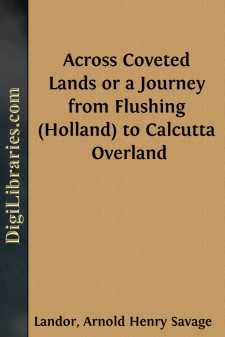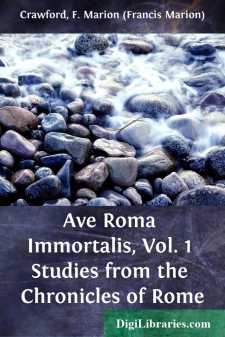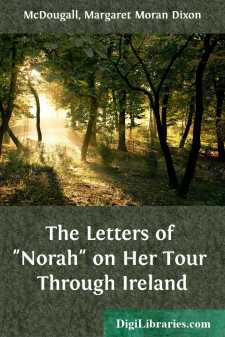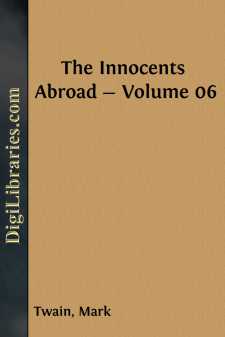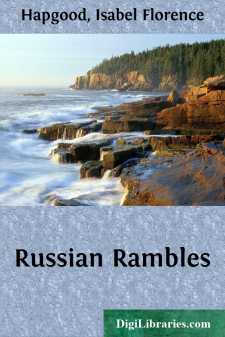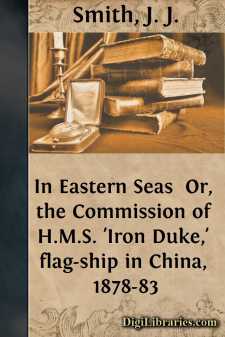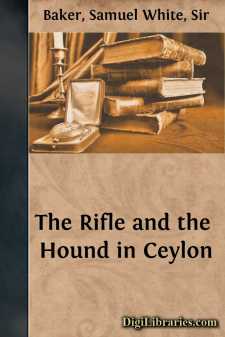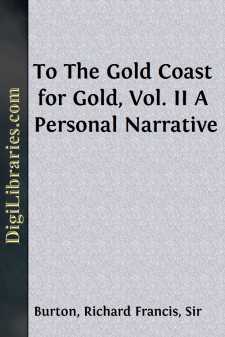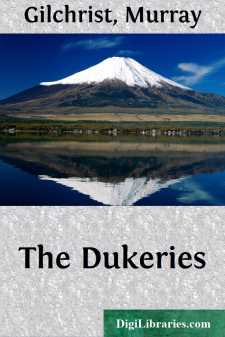Travel
- Africa 29
- Alaska 3
- Asia 46
- Australia & Oceania 26
- Canada 31
- Caribbean & West Indies 5
- Central America 1
- Europe 151
- General 39
- Maps & Road Atlases 1
- Mexico 10
- Middle East 18
- Polar Regions 7
- Reference 11
- Restaurants 1
- Russia 6
- South America 16
- United States 71
Travel Books
Sort by:
CHAPTER I The start—The terrors of the Russian Custom-house—An amusing incident at the Russian frontier—Politeness of Russian officials—Warsaw: its sights; its lovely women—The talented Pole—People who know how to travel by train—A ludicrous scene. "First single to Baku," I requested when my turn came at the window of the ticket office at Victoria Station. "Baku?—where is...
more...
The story of Rome is the most splendid romance in all history. A few shepherds tend their flocks among volcanic hills, listening by day and night to the awful warnings of the subterranean voice,—born in danger, reared in peril, living their lives under perpetual menace of destruction, from generation to generation. Then, at last, the deep voice swells to thunder, roaring up from the earth's...
more...
CHAPTER IChristmas on board—Fusan—A body-snatcher—The Kiung-sang Province—The cotton production—Body-snatching extraordinary—Imperatrice Gulf—Chemulpo. CHEMULPO It was on a Christmas Day that I set out for Corea. The year was 1890. I had been several days at Nagasaki, waiting for the little steamer, Higo-Maru, of the Nippon Yusen Kaisha (Japan Steamship Company), which was to arrive, I...
more...
OFF—EXPERIENCES IN A PULLMAN CAR—HOARDING THE "ONTARIO"—THE CAPTAIN— THE SEA AND SEA-SICKNESS—IMAGININGS IN THE STORM—LANDING AT BIRKENHEAD. On January 27th I bade good-bye to my friends and set my face resolutely towards the land whither I had desired to return. Knowing that sickness and unrest were before me, I formed an almost cast-iron resolution, as Samantha would say, to have...
more...
by:
Mark Twain
We descended from Mount Tabor, crossed a deep ravine, followed a hilly, rocky road to Nazareth—distant two hours. All distances in the East are measured by hours, not miles. A good horse will walk three miles an hour over nearly any kind of a road; therefore, an hour, here, always stands for three miles. This method of computation is bothersome and annoying; and until one gets thoroughly accustomed...
more...
RUSSIAN RAMBLES.I. PASSPORTS, POLICE, AND POST-OFFICE IN RUSSIA. We imported into Russia, untaxed, undiscovered by the custom-house officials, a goodly stock of misadvice, misinformation, apprehensions, and prejudices, like most foreigners, albeit we were unusually well informed, and confident that we were correctly posted on the grand outlines of Russian life, at least. We were forced to begin very...
more...
by:
J. J. Smith
WE COMMISSION OUR SHIP. VISIT PORTSMOUTH. PREPARE TO SAIL. On one of those delicious semi-tropical afternoons, which geologists tell us once bathed the whole of our island, and which even now, as though loath to part from its one-time home, still dwells lovingly in Devonia's summer, I wended my way to Devonport Park to feast my eyes once again on the familiar scenes of early days. What I...
more...
PREFACE. Upwards of twenty years have passed since the 'Rifle and Hound in Ceylon' was published, and I have been requested to write a preface for a new edition. Although this long interval of time has been spent in a more profitable manner than simple sport, nevertheless I have added considerably to my former experience of wild animals by nine years passed in African explorations. The great...
more...
CHAPTER XII. THE SÁ LEONITE AT HOME AND ABROAD. In treating this part of the subject I shall do my best to avoid bitterness and harsh judging as far as the duty of a traveller—that of telling the whole truth—permits me. It is better for both writer and reader to praise than to dispraise. Most Englishmen know negroes of pure blood as well as 'coloured persons' who, at Oxford and...
more...
by:
Murray Gilchrist
WORKSOP AND THE MANOR Although within the last twenty-five years Worksop has suffered many changes, unfortunate enough from an æsthetic point of view, the Dukeries end of the principal street still suggests the comfortable market town in the neighbourhood of folk of quality. The only relic of notable antiquity is the quaint inn, known as the Old Ship—a building with projecting upper story and carved...
more...


